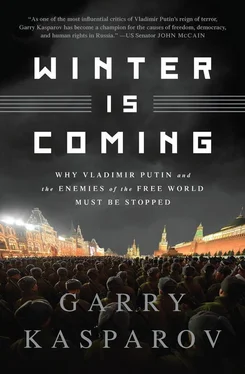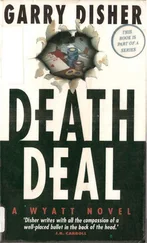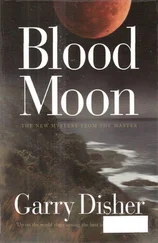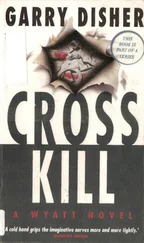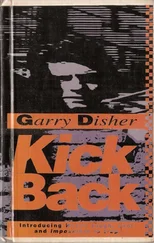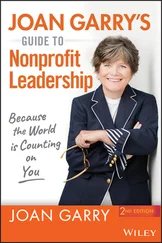Putin is not an ideologue. He and his cronies accumulated tremendous wealth, and the threat of not being able to enjoy it freely in the West would have been a very serious threat. Unlike their Soviet predecessors, Putin and his allies are not content with a late-model ZIL limousine and a nice dacha on the Black Sea. They want to rule like Josef Stalin but live like Roman Abramovich, the close Putin buddy who spent his riches buying a famous English soccer team and yachts the size of soccer fields. Putin’s oligarchs travel the world and keep their wealth abroad, and this gives Western governments real clout if they have the courage to use it.
That was even more the case early in Putin’s first term, when he was still testing what he could get away with. Like any born autocrat, Putin respects only power. He takes a step, looks around, sniffs the air, and then, if there are no negative consequences, he takes another step. With each advance, he gains more confidence and becomes harder to stop. Muted expressions of concern from diplomats and foreign ministers are the greenest of lights to someone like Putin. Such chatter is in fact designed to be meaningless in his interpretation. After all, if the United States were truly concerned it would do something instead of just talking about it while doing nothing.
The appeasers’ motives range from ill-advised optimism about Putin’s true nature to cynical political careerism that sees a belligerent and energy-rich Russia as too difficult a problem to deal with. It was easier for many Western leaders to pretend there wasn’t a problem in Russia than to admit it would be difficult or impossible to solve it. Then there’s a separate category for those leaders like Silvio Berlusconi and Gerhardt Schroder, men for whom cooperating with Putin was literally business as usual.
Despite the attempt to rebrand the method as “engagement,” the smell of appeasement is impossible to mask. The fundamental lesson of Chamberlain and Daladier going to see Hitler in Munich in 1938 is valid today: giving a dictator what he wants never stops him from wanting more; it convinces him you aren’t strong enough to stop him from taking what he wants. Otherwise, goes the dictator’s thought process, you would stand up to him from the start.
The warning signs about Putin’s nature and intent were plentiful. His rise to power was aided by his brutal response to the 1999 apartment bombings, terrorist acts that many still suspect to have been a Reichstag-style provocation. (But unlike the Reichstag, there was actual blood spilled.) Carpet-bombing and torture of civilians across Chechnya were presented as part of the global war on terror, which was a complete fabrication. Later, Putin’s contempt for the value of human life was confirmed in two hostage situations, the first in 2002 when federal troops using a still-unspecified gas killed many dozens of hostages in the Nord-Ost theater standoff in Moscow. The second came in 2004, when security forces using military weapons demolished a school full of child hostages in Beslan, resulting in the deaths of hundreds.
The Kremlin’s rapid subjugation of the Russian press was, along with a rise in oil prices of over 700 percent by 2008, the biggest reason behind the perceived success of the regime of Vladimir Putin. Very early on in his first term as president, Putin learned that control of the Fourth Estate was essential to controlling the other three. The lesson stemmed from the public outcry over the botched rescue of the crew of the Kursk nuclear submarine, which sank after an explosion during a training exercise in the Barents Sea in August 2000. Instead of taking names in the military or cleaning out our Augean bureaucracy, Putin went after the free press.
Media outlets were taken over by forces friendly to Putin and his closest associates. The owner of NTV, Vladimir Gusinsky, spent three days in jail in June 2000 and was forced to give up his company. In fact, in what would become a typical “negotiating method” of the day, he was forced to sign over his company before being allowed to leave jail. He fled to Israel while his channel was appropriated and absorbed into the Kremlin’s portfolio in April 2001, and today, ironically, NTV is probably the dirtiest of the official propaganda stations against some very tough competition in that field. This “soft censorship” was accompanied by the more conventional kind, with its lists of non grata names and verboten topics. Media power was centralized in the same fashion as political power, and with the same purpose: looting the country without causing a popular revolt.
The corruption of the Yeltsin era is burned into Russia’s collective memory only because we learned about it in the press at the time. In the 1990s, the competing oligarchs waged war against one another in their media outlets. It was not a fight fought fairly or decently, but a preponderance of facts came to light and thousands of honest journalists worked to bring the truth to the Russian public. Under Putin, the only light came from the endless stream of glowing articles about him and his administration.
In the typical pattern, the Western response to these bold steps toward despotism was limited to press releases expressing concern while business went on as usual. Putin was welcomed as a full member of the G7, which is supposed to represent great industrial democracies. For those who excuse the invitation due to Russia’s size and influence, note that China is not a member. Russia’s inclusion was a reward for democratic reforms and it should have been rescinded as soon as Putin rolled back those reforms. It says a great deal that Russia’s membership was not revoked until Putin invaded Ukraine and annexed Crimea in March 2014.
Putin’s strong opportunistic instincts led him to make perhaps the most important phone call of his life on September 11, 2001. He was the first foreign leader to call President George W. Bush and offer full support after the terror attacks. By so doing he earned the sympathetic Bush’s trust and the benefit of the doubt for seven long years. (This must have changed when Russia invaded Georgia in 2008, but that itself was a reflection of how much Putin had grown in ambition and confidence during Bush’s term.) Putin succeeded in portraying Russia as a US ally—in Afghanistan in particular—while actively working against US and European interests elsewhere.
Bush 43’s ability to stand up to Putin’s many transgressions was further constrained by a chance comment several months earlier when the two men first met, in Slovenia on June 16, 2001. It was after that meeting that Bush uttered this famous evaluation: “I looked the man in the eye. I found him to be very straightforward and trustworthy and we had a very good dialogue. I was able to get a sense of his soul.” After that comment, Bush couldn’t take Putin to task without admitting a serious misjudgment of his character; and admitting mistakes was never Bush’s strongest suit. To be fair, Bush and the United States had a new set of top priorities after 9/11. But it is still a little surprising in hindsight that an administration with experienced Cold Warriors like Cheney, Rumsfeld, and Soviet/Russia expert Condoleezza Rice completely failed to put any pressure on Putin.
As the saying goes, however, as bad as things get they can always get worse. Barack Obama came into office with hardly any foreign policy experience and saddled with overwhelming domestic challenges. He also had a clear mandate from an American people burned out on long unpopular engagements in Afghanistan and Iraq: fix America and leave the rest of the world alone. There was little chance that Obama, the idealistic newcomer, would challenge Putin in any meaningful way despite adding the Orange Revolution-savvy Mike McFaul to his foreign policy team.
Читать дальше
